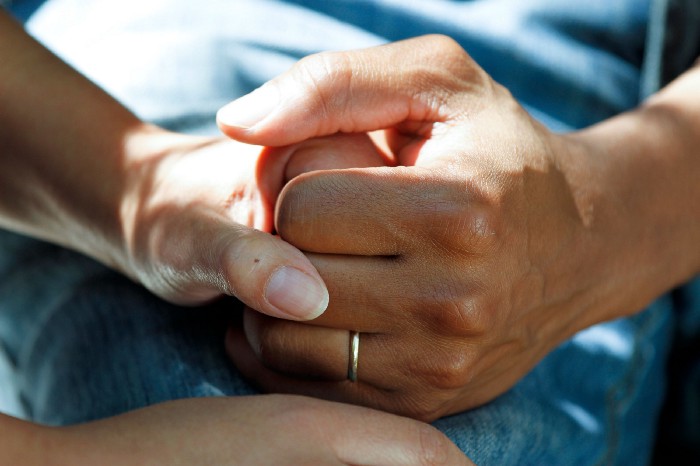
My go-to approach to crisis has always been to rely on my most rational sensibilities. Observe the symptoms, identify the problem, come up with a solution, and execute. In some ways, particularly in situations where another human being is involved, this approach has allowed me to insulate myself from the actual pain and suffering, while still being a part of the “solution.”
But while this approach may have functioned back when I worked in an operating room and encountered real tragedy on a daily basis (I was premed in college and got a job as an anesthesia technician), it isn’t working today. Like many of you, I’m trying to process a lot of people’s suffering at the same time. I’m contending with multiple family illnesses, friends dying, students and colleagues in crisis, and a bigger world of readers, listeners, and perfect strangers who are confused, terrified, and traumatized by everything going on.
I spent the first couple of years of the pandemic relying on my tried and true strategy of listening, empathizing, and responding to people’s suffering—but doing so from a removed position. I erected some sensible boundaries for self-preservation, or maybe insulation, from everyone else’s pain. Shit, I have enough pain and frustration, myself.
But I’ve found this approach actually creates a whole lot of residue. I leave the interaction, but carry an echo of the trauma and doubt about my own response for hours or days later. I go to bed at night with the faces and problems and winces of the anguished still racing through my head. And most of all, I feel plagued by the incompleteness of my compassion, my privileged status as a basically healthy person with work, friends, and a modicum of security. It is as if holding back something in the moment of interacting with people — whether in real life, Zoom, or even an email—generates a rebound effect later on.
So I’ve been trying something else. Instead of girding myself for interactions with those in great pain, I do the opposite. I breathe, fully but effortlessly as if in a relaxation exercise, and then engage as fully and openly with whomever. Not to sound too much like Bill Clinton or Oprah Winfrey, but I really do try to be with them and their pain. Not to “feel their pain” so much as bear full witness to it; to be open to it so I can metabolize it with them, letting my body and awareness increase their own capacity for healing or processing or sense-making or even just mourning.
It reminds me a little bit of the feeling I’ve had witnessing people’s deaths. I’ve had the privilege (and I realize that’s an odd word to use) of sitting with more than a few people as they’ve passed on. I’m not sure how conscious most of them were by then, how aware of my presence, or if they knew who it even was sitting by their bed and holding their hand.
But the sense of responsibility and honor I felt was overwhelming. No, I wasn’t getting off on their deaths, but I understood the immense privilege it was to be their companion. I may not have been the closest relative or friend, but I was the one who just happened to be there for perhaps the most profound, solitary experience of their lives. I held the space, and the only way I was able to do it was by surrendering fully to it. Not watching TV or checking my email, but really being there.
I’m taking a lesson from those experiences as I encounter what feels like an onslaught of people in physical pain, mental confusion, recent trauma, or newly triggered painful memories. I’m not protecting myself from it all anymore, or at least I’m not protecting myself by compartmentalizing these encounters.
Instead, I’m making eye contact. Breathing with people as they speak. Or I just sit and do nothing but really be there. It’s not a joyous feeling exactly, but it’s very full, real, alive, and it doesn’t leave that same, weirdly incomplete, unfinished, and guilty feeling afterwards.
And I’m trying to approach the greater suffering in our world or even on TV and the internet the same way. We all feel them: the people suffering from Covid-19 or under the restrictions of pandemic policy. Those suffering the injustices of racial or economic inequity, violence or hunger, climate catastrophe, or war. The people simply freaked out by politics, invasive technology, nationalism, or the inability to connect with others. By acknowledging them, taking them in instead of relegating them to a background hum of despair, something changes. A new space opens up.
I don’t know what to call it. It’s not totally without pain and sorrow of its own, but it’s also a space of comfort and connection. A way to help, even when there’s nothing left to say or do. I think it’s called compassion.